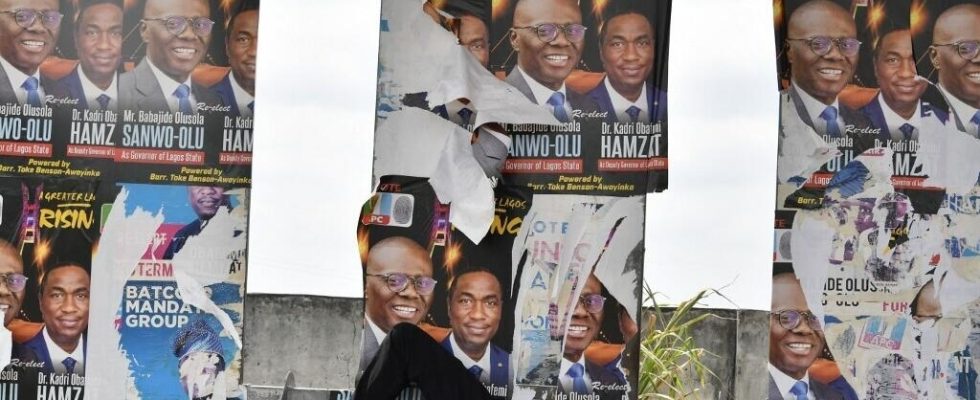After the presidential election on February 25, won by the government candidate Bola Tinubu, Nigerians are electing governors and representatives of local assemblies in 28 out of 36 federated states this Saturday. This is a crucial election in the Nigerian federal system. , one of the major challenges of which today rests on the ability of the opposition to confirm its scores in the presidential election.
The electoral map was completely redrawn following the February 25 general elections in Nigeria. Faced with the Congress of Progressives in power, the opposition has grown, recalls Cyrielle Maingraud, deputy director of the French Institute of African Studies in Ibadan.
” The emergence of the third way of Peter Obi of the Labor Party completely shattered this opposition that we saw since 1999 between the APC and the PDP. The question I also ask myself is to what extent the presidential vote will translate into the same vote in the gubernatorial elections. »
The opposition notably came out on top in Lagos – which voted in the majority for Peter Obi of the Labor Party – but also in Kano – where Rabiu Kwankaso, of the new Nigerian People’s Party came out on top. By contrast, in the southeast, the governor of Rivers state betrayed his own party’s candidate, Atiku Abubakar – by pushing votes in favor of Bola Tinubu during the presidential election.
► Read also: Nigeria: the election of the governor of Lagos, a crucial political issue and a source of tension
But it is unlikely that the APC will again benefit from this maneuver. ” Governors are also people who have political and economic networks. They have machineries that will be set up at the state level, machineries that they did not set in motion in the same way for the presidential election.. »
The election of governors will be a crucial test for the president-elect – and an unmissable opportunity for the opposition, especially since in the Nigerian federal system, local politicians wield enormous political and symbolic power.
Governors, powerful and influential politicians
In each Nigerian regional capital, “Government House” – the palace of the governor – is a central and ultra-secure point. It is not rare to see the imposing escort of the local governor coming out, tinted windows and screaming sirens. These powerful local politicians rule over areas as vast and populated as some African nations – and possess enormous financial resources.
And if the President of the Federal Republic of Nigeria has control over the security apparatus, the governors have almost immediate power of action over their constituents. During the February 25 presidential election, Labor Party candidate Peter Obi, for example, highlighted his record at the head of Anambra State, where he notably reformed the education system.
Nigerian governors play a key role in nominations, both locally and nationally – their support is even essential to becoming a traditional leader or president of Nigeria. During the presidential election, Atiku Abubakar of the People’s Democratic Party (PDP) was betrayed by five governors of his party, who arranged for him not to come out on top in their regions at the end of this election.
